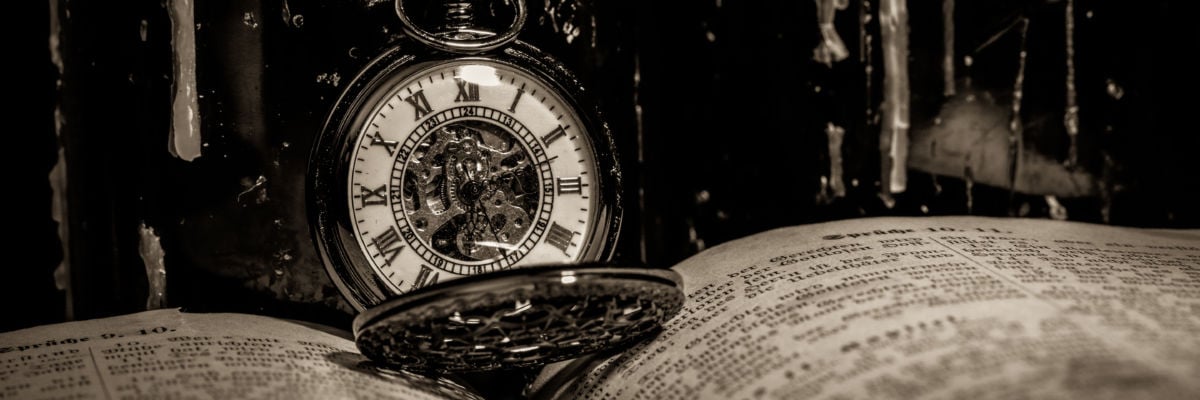
Not unlike our attitude toward death, we tend avoid to avoid the topic of the end of the world by trivializing it. We don’t mind it in the plot of an action movie, or from someone standing on a bucket on some urban street corner, or from a politician reminding us that every election is set to be the end of democracy. (The American two-party system, at least, seems to thrive on the idea of ever-impending apocalypse.)
In our age of near-constant and universal anxiety, the trivialization and Hollywoodification of the end of the world is our way of avoiding the fact that the world really will end.
Whenever some big catastrophe happens, you can be sure that someone will start talking about the “end times.” Both Catholics and Protestants do this. The difference mainly seems to be that Protestants start trying to chart out the apocalypse according to Daniel and Revelation, whereas Catholics try to chart it out based on various private revelations. But what Christians today often forget is that the Church has been talking about the “end times” since A.D. 33, when humanity crucified the Son of God. Jesus’s death and resurrection was the beginning of the end, the sudden unveiling of God’s final purpose for his creation.
Things got serious again in A.D. 70 when the temple at Jerusalem was destroyed, just as Jesus, in today’s reading from Luke, said it would be. The temple was, for the Jews, the center of the universe: the place where God could reliably be found. Then it was all gone. And even the fact that Jewish Christians were able to make sense of this in light of Jesus—to see that he was forever after the true temple—did not relieve the trauma of the event.
From a biblical point of view, then, we have been living in the end times for the last 2,000 years.
In that light, there are two things I want to share with you today concerning these end times in which we live.
First, the drama is real. The last things are real: death, judgment, heaven, hell. Sin and evil are real. There are worse problems in the world, deeper and more substantial problems, than the fact that your brother looked at you the wrong way, or that your job is boring, or that traffic is robbing you of valuable hours that you’ll never get back. Most people in the history world have understood this, because most people in the history world have had to face sin and evil every day in the form of suffering, of poverty, of hunger, of violence, of simple lack of meaning.
Years ago, when I was spending a lot of time with kids in a certain east coast inner-city neighborhood, none of them had any problems accepting Christian teaching about sin and evil: they saw it every day in their mothers who did drugs, their brothers who went to prison, their fathers who might or might not be around, their friends who got killed. And this is just scratching the surface. Evil is real, and it is much more incoherent and villainous and monstrous than we could possibly imagine.
And it’s not the sort of thing that could be solved if everybody just worked a little harder—much less if everybody votes the way the Party wants you to vote. It’s not the sort of thing that can be solved by ever-increasing scientific knowledge. It’s not the sort of thing that can be safely relegated to something over there, in far parts of the world, because this evil runs right through the middle of every single one of us.
We live in the end times. There is nothing new about this. We killed our God. Anything can happen. We should never be surprised.
So yes, the drama is real, but so is the salvation. And this is my second point. Evil is real, but so is good. In fact, the good is more real because evil is always destructive, always negative, always corrupting. Whereas the good creates, builds, grows, nurtures, comforts, enhances, heals.
The good news of Jesus Christ is that evil does not triumph, cannot triumph, and so we do not have to fear. We can look in the face of evil—as so many Christian martyrs have done and do even today—and persevere in loving the good.
This is an incredibly hard thing to say and do. Like so many parents, when I look at the horrible things happening in the world, I wonder what kind of future my children will have; I wonder what evils they may have to face. And thinking about it makes me afraid. I don’t want my children to face violence or persecution; I don’t want them to be hurt. But my role as a parent is not to save my children from all harm; it is to teach them how to live courageously in a world full of evil, to teach them how to be good even when it hurts.
If we go all our lives thinking that being good is easy, that truth and beauty are just things we can take for granted, we will crumple in the face of the world’s evil.
Remember: the old world has already ended. History has already reached its decisive low point, its point of no return, in the cross of Jesus Christ.
And this is exactly why even St. Paul can be so unconcerned with the coming apocalypse. Yes, death is coming, judgment is coming, heaven and hell are coming, all temporal things will have their end, but we already know what that ending looks like: the triumph of life over death, the restoration of all things in Christ.
In God’s economy, you see, nothing is wasted. Not even death. Death is used to defeat itself, to take the sting away from sin and sickness and evil, to heal the element of tragedy infusing all human work. And if even death is not wasted, surely we can think, along with Paul, that our work on this earth is always necessary and valuable, not because God needs it to bring about his eternal kingdom, but because he has given us the privilege of being coworkers in that kingdom. He promises us that our labors will never be in vain.
And this means not just the ordinary work of living, but the spiritual work of repentance, in which even our sins become fuel for the fire of the Lord’s forge where he molds us and shapes us anew.



